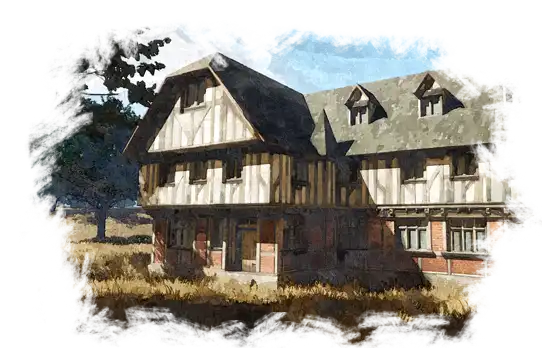Walden
"



 "
"

by Zev Chafer (original art)

by Zev Chafer (original art)
There are places I have never been...
Walden
Neighbourhood
Walden is a neighbourhood in the southern part of the Vöhren district in Amt Aldáer. It has been owned by the Walda family for decades, with Sjoerd Walda as the current Landlord/Baron. The main house on the land is the farm Grennsted, where the Walda family resides. Scattered around the area are small farms, mostly owned by cottagers or used by Grennsted labourers.
A large part of the neighbourhood is covered by Grenn forest, an ancient forest with a high ecological value that is protected by the Walda family. Additionally, sections of the rivers Kild and Holle are also protected due to their contribution to the biodiversity of the neighbourhood and district. In addition to the main farm Grennsted, there is a watermill called ""The Black Poplar"" located on the banks of the river Holle. The mill is used not only by residents of the Walden estate but also by people from other areas. Currently, the watermill is used as a flour mill, oil press, and sawmill.

by Zev Chafer (original art)
Location
Walden is located in Vöhren. The District of Vöhren is located on the border between the Kingdoms of the Netherlands and Hanover. Most of the area is covered by a dense, ancient forest called Grenn forest. Over time, parts of the forest were cleared for wood production, and in the cleared areas, people began building houses and farms. Initially, most people relied on the forest and kept animals like sheep and poultry. As the open areas expanded, they started farming crops and raising cattle as well. The river Kild, which forms the eastern border of Vöhren, supplies water to the area and keeps it fertile. However, due to years of overfarming and deforestation, the soil quality has rapidly decreased. The fertile open spaces have slowly turned into barren fields where only heather can grow. Nowadays, the remaining farmers struggle with the soil and can barely survive.
To protect the ecological value of the forest and river, most of Grenn forest in Vöhren has been preserved. Wood production is limited, and residents must replant trees to prevent further decline. Fishing rights are restricted, and efforts to boost biodiversity are encouraged. In just a few years, some extinct animal and plant species in the area have returned, enhancing both biodiversity and soil quality.
Vöhren is divided into three neighbourhoods: Walden, Denron, and Roven. The Walda family owns the Walden while Roven is centered around a manor house. Denron, on the other hand, does not have a single landlord or lady. Instead, it is collectively owned by the landowners, who are mostly farmers or large institutions.
Sublocations
Name
Type
Events

by Zev Chafer (original art)
Inheritance

by Zev Chafer (original art)



Comments